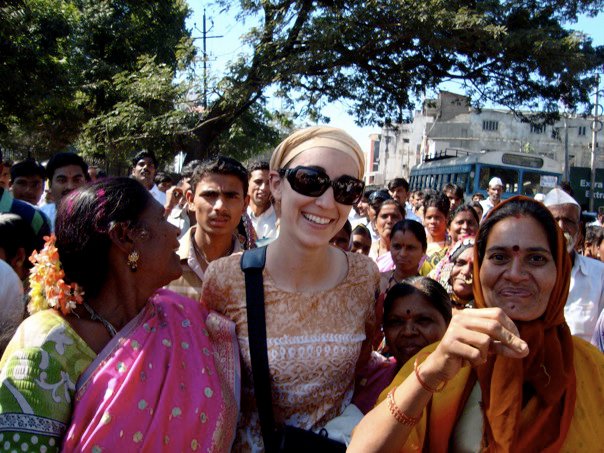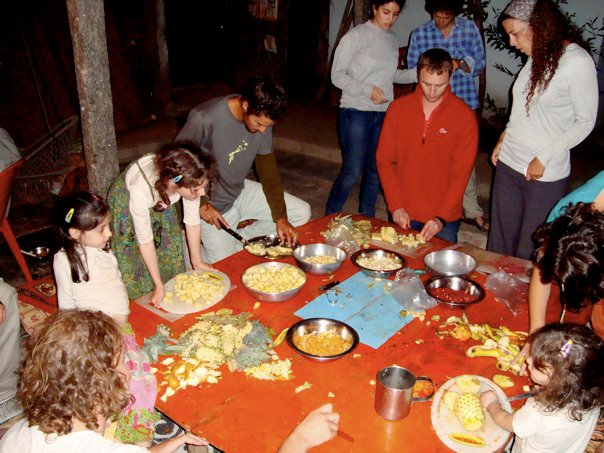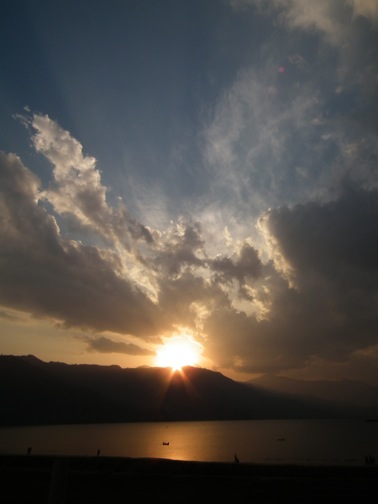The Young Adult Chabad Centre in Sydney, Australia is a gathering place for young Jewish adults to explore their Judaism through Torah studies, prayer, and social activities. It is run By Rabbi Eli Feldman and Rabbi Danny Yaffe, who work actively in attracting a young crowd looking to find out more about their Jewish heritage.
Rachel and I have been going to pray there quite often. We enjoy the calm, easy, and laid-back feel. It is a place where people can pray at their own level. This past Shabbat following the afternoon prayer service (Mincha) we sat down to eat Seudah Shlishit, also known as Shalosh Seudas in Yiddish. It is the third meal eaten on Shabbat, to celebrate the holy day. During the meal, there is often beautiful singing and someone will share some words of Torah and or a story of inspiration.
This week it was a treat to hear Gershon Wachtel speak. Gershon has some incredible stories on how he’s stayed strong in his Judaism. He also seems to have some elixir of youth,because at over sixty years old his face is pretty much wrinkle-free. Gershon said the secret to youth and vitality is: “Life is serious, but you don’t have to take it so seriously. Take the time to smile at people and always have a good word.”
Gershon Wachtel is a fantastic pianist who has been playing for over 50 years. He shared some of his personal experiences of how as he became religiously observant he was often in conflict when it came to performances that were to be held on Shabbat. Notably, there were times when he could have had the opportunity to play at the Olympics and at some high-profile piano competitions, but there would have been no way to avoid playing on Shabbat. “G-d is testing us,” said Gershon. “and each one of us has our own challenges in whatever way they may be.”
How true this is. His words made me think of my mountain climbing challenges when it comes to keeping Shabbat and being high up in the mountains. Each one of us has our own conflict, and no one individual’s is necessarily greater than the other, only different in its presentation.
After the havdalah ceremony, Wachtel treated us to a few songs played on a piano that do not do justice to his musical talent. It was an old piano hanging around the Yeshivah Centre that has probably not been tuned in years. Nevertheless, Wachtel played some inspiring Jewish music from the soul. He said how he really only learned to truly play perhaps some ten years ago when he started playing from the soul.
I liked this because as a chazzan and student of Jewish chazzanut I know how true it is: When it comes to leading the congregation in song, if the leader is connected with his soul the voice does not matter so much as the truth behind it. However, of course it’s a blessing to have both, the soul and the voice.
Gershon Wachtel certainly had soul and talent in his music, and I say thank you for inspiring me.
Here is a video clip of Gershon playing a tune to Psalm 23. It is one of my favorite tunes and I enjoy his interpretation of it
Read More











